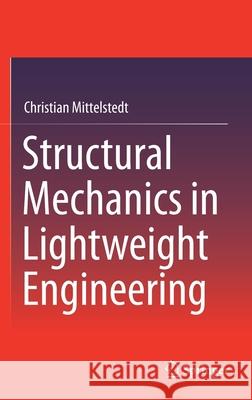Structural Mechanics in Lightweight Engineering » książka
topmenu
Structural Mechanics in Lightweight Engineering
ISBN-13: 9783030751920 / Angielski / Twarda / 2021 / 674 str.
Kategorie:
Kategorie BISAC:
Wydawca:
Springer
Język:
Angielski
ISBN-13:
9783030751920
Rok wydania:
2021
Wydanie:
2021
Ilość stron:
674
Waga:
1.13 kg
Wymiary:
23.39 x 15.6 x 3.66
Oprawa:
Twarda
Wolumenów:
01
Dodatkowe informacje:
Wydanie ilustrowane











